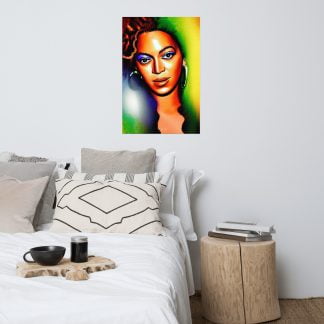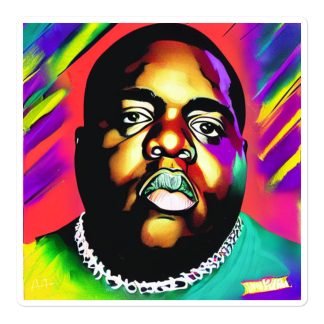In this series I introduce you to the basic steps of wealth creation. When I say basic, I mean basic. We’re not talking about stocks and bonds (yet).
Get Rid Of Your Payroll Card
Many folks in the Black Community, especially those in low-wage jobs, receive payment from their employer in the form of pre-paid employee payroll cards.
These cards are often made by major payment processors, like Visa or Mastercard, allowing workers to use them anywhere electronic payments are accepted. They may seem like a great alternative to having a bank account or receiving paper checks, but the true devil here is in the details.
Payroll Cards Have Super-High Fees
Payroll cards are marketed in different tiers: annual payment plans, monthly payment plans and pay-as-you-go plans.
Take Netspend for instance. They have two tiers in which they market their “products” to you. First they have a monthly plan where you pay $9.95 per month and don’t get charged for some other fees. What are those other fees? Let’s take a look at a side-by-side comparison with the pay-as-you-go plan so you can see for yourself:
| Type of Fee | Pay-As-You-Go Plan | Monthly Plan |
|---|---|---|
| Plan fee | $0 | $9.95 per mo. |
| Per purchase | $1.50 | $0 |
| ATM withdrawal | $2.50 | $2.50 |
| Cash reload | $3.95* | $3.95* |
| ATM balance inquiry | $0.50 | $0.50 |
| Live customer service (per call) | $0 | $0 |
| Inactivity (after 90 days w/ no trans.) | $5.95 per mo. | $5.95 per mo. |
What you don’t see listed above is what they have hidden far below where most people scroll right past, anxious to click the “agree” button. That is where they really ding you for having an account with them.
While direct deposit is free, if you want to add funds through a mobile check deposit be prepared to fork over 5% of the check amount. That means if your employer’s payroll system isn’t working one day and they give you say a $1,000 check instead, it will cost you $50 to deposit that check to your card so you can actually use funds.
What’s worse though are those nasty per-transaction fees. If your breath stank and you go to buy a $0.50 pack of gum, using your card, it will cost you $2 ($0.50 + $1.50 per transaction). Do you use your payroll card to pay your cellphone or utility bill electronically? That’s right $1.50 each time.
Those little buck fifties start adding up after a while. If you average 10 transactions per week, that’s $15. Over a month’s time, that swells to $60. So for a given year, you could easily be spending over $700 just for you to use YOUR money. That’s only for 10 transactions per week–you could be making more than that.
I would guess that if you have a payroll card, you are spending well over $1,000 per year to use your money. Doesn’t that sound silly? If you want to make a change and save that money, you must open a bank account or, better yet, become a member of a credit union.
Save Bank By Banking
Banks and credit unions offer many of the same benefits, but since I believe credit unions offer friendlier terms in many cases, my reference to “account” or “bank account” will be in regards to credit unions.
Credit unions offer great terms to its members. And it’s not hard to become one either. Some credit unions let you become a member if you live in the county or state they operate in. Easy qualification right?
Not only can you get better rates than banks and other lenders on things like auto loans, but even on mortgage (home) loans or loans for RVs. They even have great rates on credit cards (we’ll save credit cards for another discussion).
Aside from the rates though, many credit unions offer no-fee checking accounts. That means unlike your payroll card you won’t be charged for things like buying gum, depositing checks, or in other words, using and accessing your money.
Having a bank account also means you get to save big money! Remember the easy $700 in annual payroll card fees we calculated above? That’s enough for rent in many places. That’s a new Chromebook or school supplies. That’s a class or two at a junior college to finally earn your Associates’ Degree. The point is that the money you are giving away to your payroll card company is money you can easily invest in yourself and your family’s future.
They Won’t Let Me Open An Account
If you’re concerned that your banking history will prevent you from opening an account, you may be right. However, I ask you, “When was the last time you tried to open a bank account?”
The system banks use to track your history is called ChexSystems. Most histories in ChexSystems are cleared and removed after five years. If it’s been less than five years, you may be eligible for a “second-chance” account which is designed for folks with poor credit and banking histories. Make sure you inquire wherever you plan to do business.
No matter your financial history, you owe it to yourself to open a bank account and keep trying until you do. The difference in real dollars makes sense to me.
What Do I Need To Open A Bank Account?
The process nowadays is really simple. Most often you need these few things to open an account and that’s it:
- Name
- Address and phone number
- Date of birth
- Social Security Number
- Some form of ID
What Are The Fees On My Payroll Card?
Check out different fee plans for different cards and programs here. Just find the card you have and the fees you pay to use your money will be before your very eyes. That way you can see exactly how you’ve been screwing yourself.





